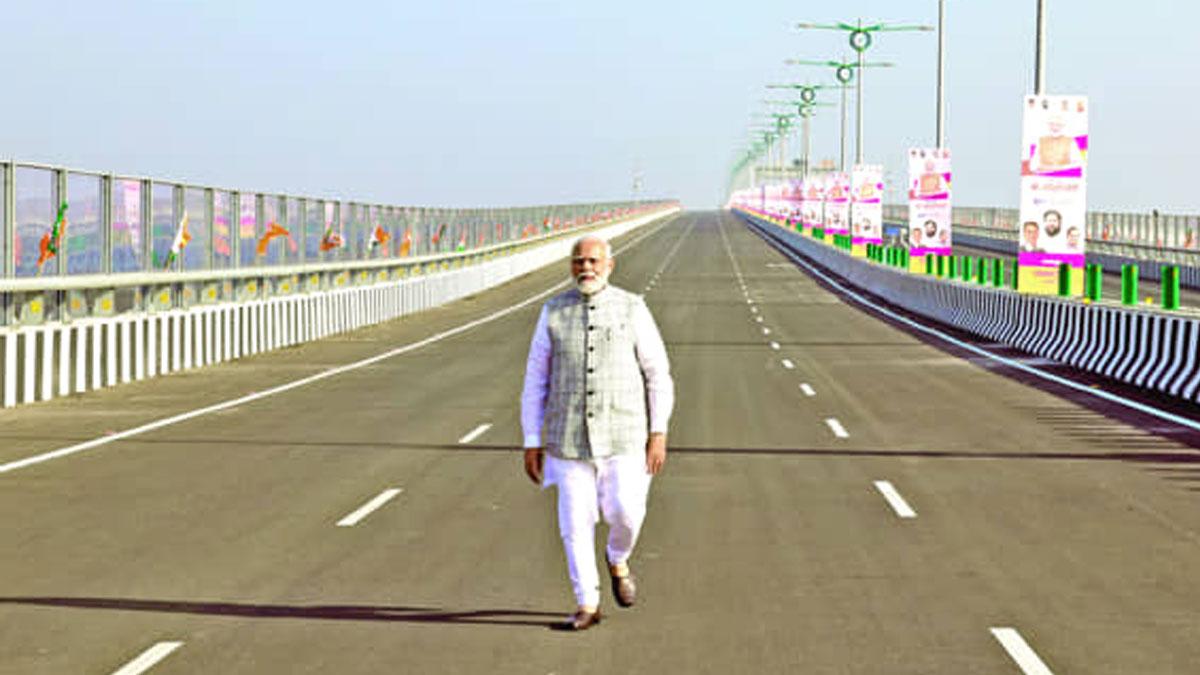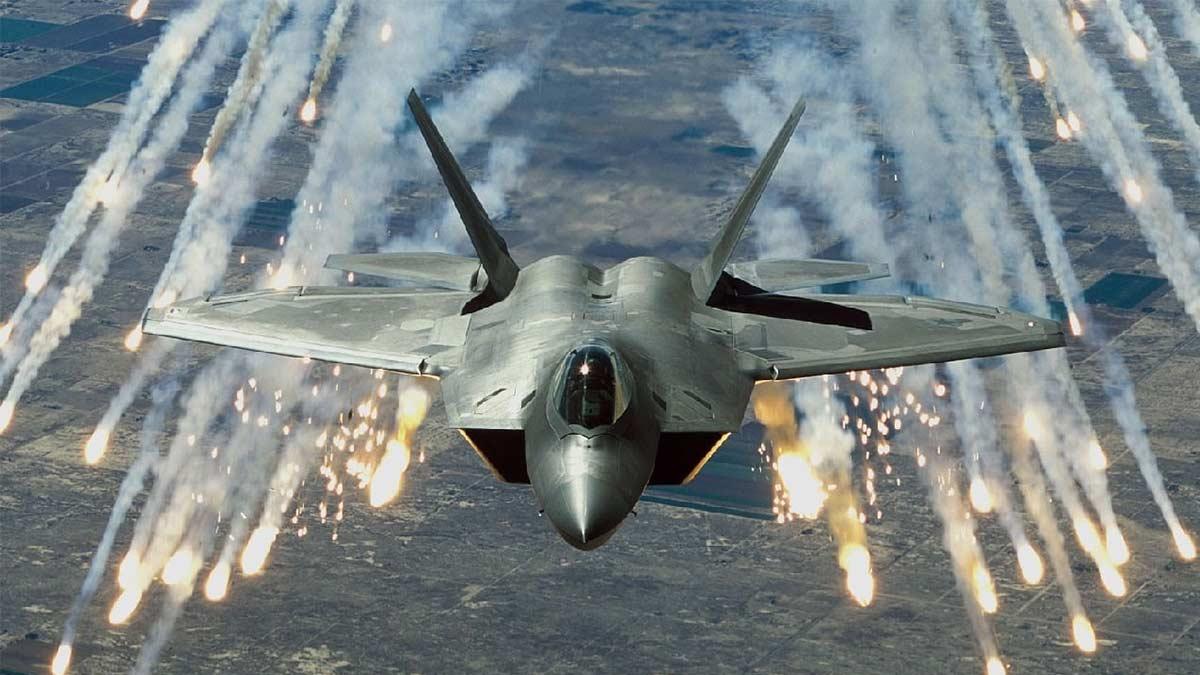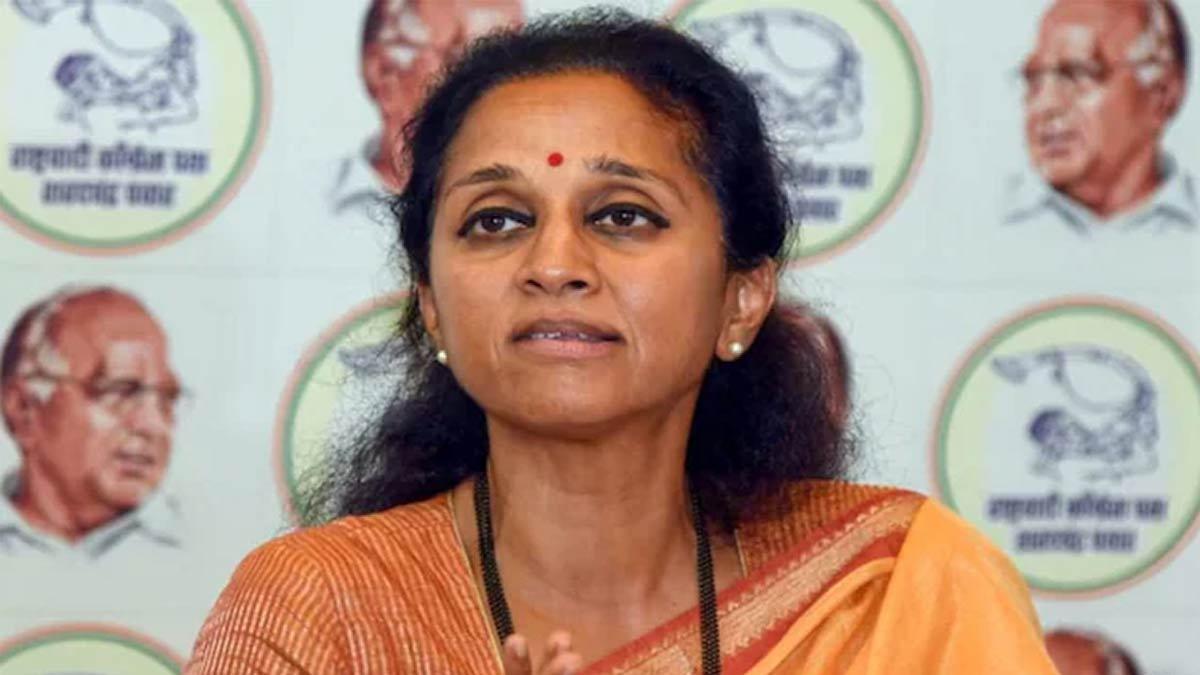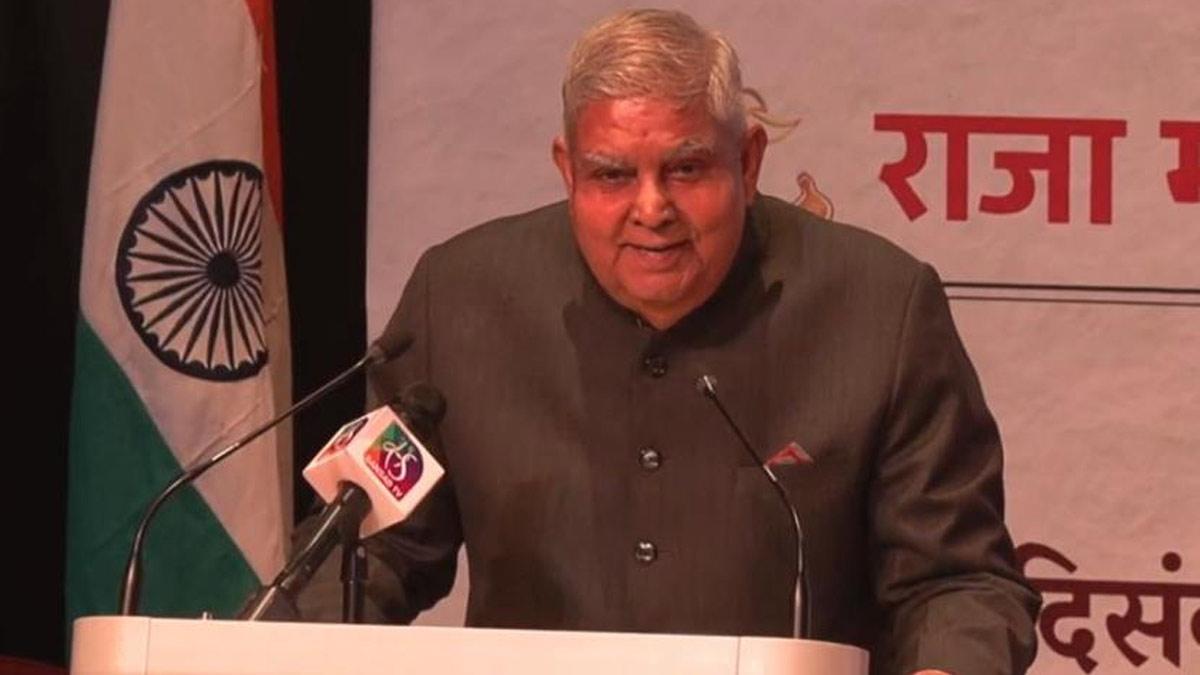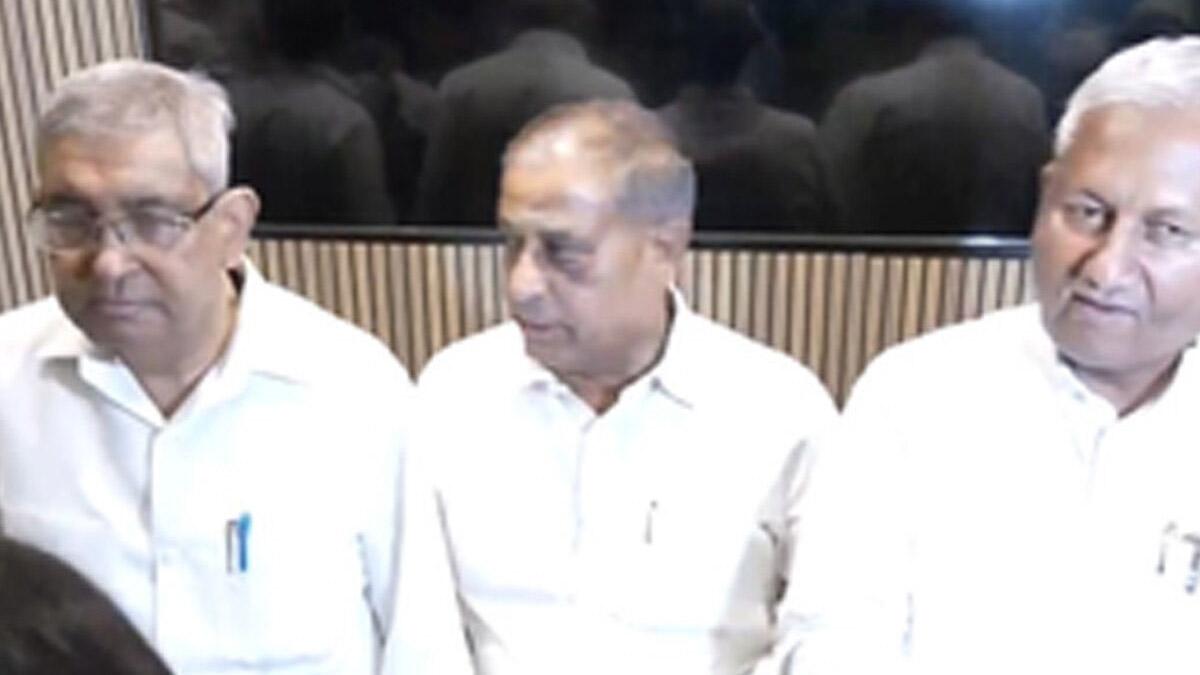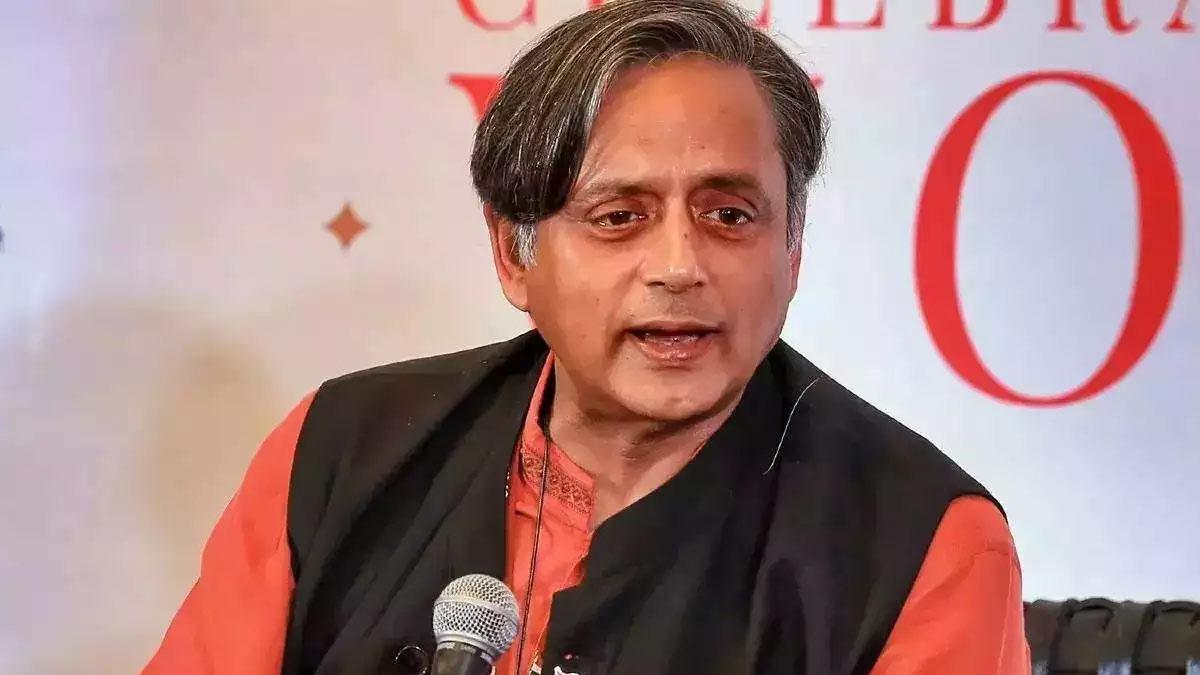Prime Minister Narendra Modi hailed India's longest sea bridge, Atal Setu, as a symbol of the nation's infrastructural prowess and a reflection of a developed Bharat. Inaugurated after more than seven years since its foundation stone was laid, the 21.8-km-long Atal Bihari Vajpayee Sewri-Nhava Sheva Atal Setu is a 6-lane trans-harbour sea link connecting Mumbai with Navi Mumbai. Costing Rs 17,840 crore, this engineering marvel, with 16.5km over the sea, is expected to reduce travel time between the two cities to just 15-20 minutes.
PM Modi highlighted the completion of mega projects, contrasting it with the scenario before 2014 when delays were common, and "mega scams" dominated discussions. He emphasized that the completion of major projects is now a focal point of discussion, illustrating the transformative changes brought about in India. The Atal Setu, in particular, signifies the development of the country, according to Modi, and aligns with his government's commitment to a "Viksit Bharat Sankalp" (resolve to make India a developed country).
The prime minister expressed pride in the achievements of his government, pointing out the completion of several infrastructural projects that will boost Maharashtra's economy. These include the upcoming Navi Mumbai international airport, Mumbai coastal road, AURIC (Aurangabad Industrial City), the Mumbai-Delhi Industrial Corridor, and the Mumbai-Ahmedabad bullet train project.
Beyond the Atal Setu, Modi inaugurated and laid the foundation stone for various infrastructure projects in the Mumbai region worth over Rs 30,500 crore. Among these were the extension of a suburban rail corridor, a facilitation center for gems and jewelry, and the foundation stone for a tunnel road in south Mumbai.
In Nashik, during the inauguration of the 27th National Youth Festival, the prime minister commended the present-day youth as the most fortunate generation of the 21st century. He urged them to actively participate in the electoral process to diminish the influence of dynastic politics, stating that their engagement in active politics could help reduce the harm caused by dynastic politics.
Modi emphasized the significance of youth involvement in politics and their role in shaping the future of the country. He encouraged them to support local products, refrain from drug use, and avoid using abusive language. The prime minister praised India's young population, recognizing their energy and skills as crucial elements in the nation's progress.
He highlighted India's achievements in various sectors, including the economy, start-ups, skill development, and advancements in space missions and digital payments. Modi also urged people to conduct cleanliness drives at temples and pilgrimage centers before the consecration ceremony of the Ram temple in Ayodhya. During his visit to Nashik, the prime minister participated in prayers at the Kalaram temple, engaged in bhajan and kirtan, and held a roadshow in the city.
(With Agency Inputs)

